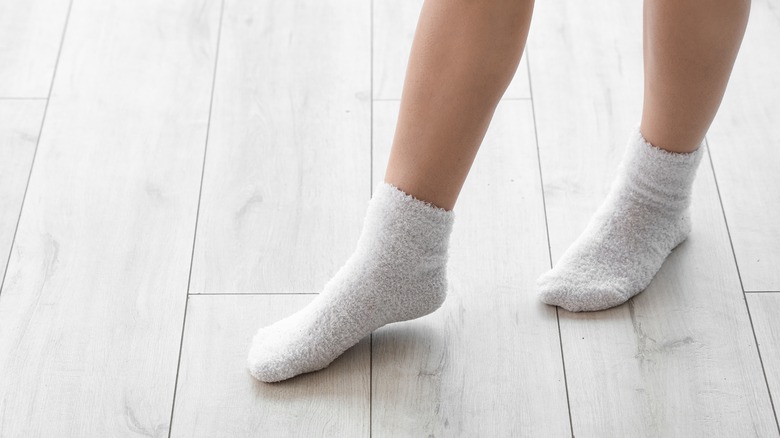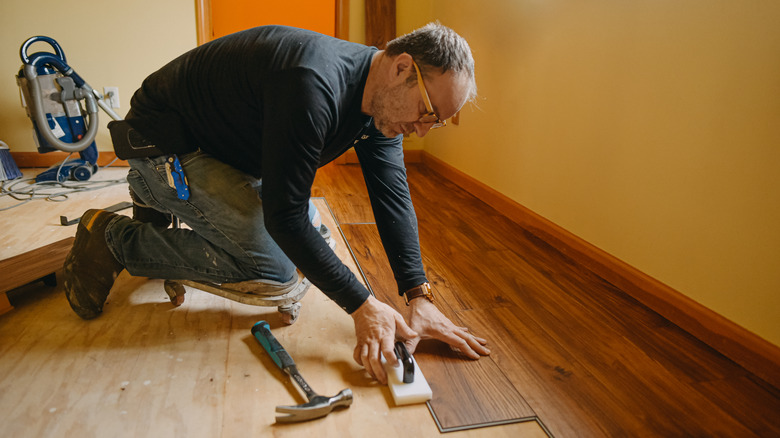Here's The Real Reason Your Floors Are Squeaking
We may receive a commission on purchases made from links.
After hours of trying, the kids are finally asleep. You sneak quietly out of the room, only to have a squeaky floorboard give you away. Little eyes shoot open, crying ensues, and another night is ruined.
Squeaky floors run the gamut from easily ignorable inconvenience to nightly nuisance. Your floors may look and feel the same as the day they were installed, so why the sudden squeak? To get answers, Hunker exclusively spoke with Josh Byrd, owner of Footprints Floors Nashville, and he gave us the scoop. It turns out, there's a common culprit. "Nine out of ten times, the squeak is coming from subfloor movement underneath the floor covering," Byrd explained. He highlighted how the root cause of this ranges from a home settling over years (or decades) and the ensuing structural shifts, to — you guessed it — improper installation. "There are many standards to follow when installing a subfloor properly," Byrd said. "Each panel needs to have proper gaps between them."
Too small or too wide a gap and the floors will squeak, hence why most flooring manufacturers advise leaving one-eighth of an inch all the way around. To top it off, wood expands and contracts due to changes in humidity. Newly purchased hardwood — and the plywood used for the subfloor – need to acclimate to your home's environment before installation to reach their Equilibrium Moisture Content (EMC) and prevent movement. EMC is the point at which the wood has stopped taking in or losing moisture ,and typically takes around three days. However, that varies depending on your area and flooring type. You can check for EMC with a General Tools moisture meter.
How to prevent (and fix) your squeaky subfloor issues
The best way to prevent a squeaky floor is installing subfloors properly in the first place. We've already mentioned leaving the proper gaps between planks, but it is also important to keep the planks firmly in place to prevent future movement. "Many subfloors are installed with nails and they don't hold up over the years," said Josh Byrd, owner of Footprints Floors Nashville. He recommends using properly sized screws or fasteners in lieu of nails, which often come loose.
Maybe you've already got an issue, however, in which case what you're looking for are solution or maintenance tips. In that regard, there are some things you can do at home to temporarily stop hardwood floors squeaking and creaking. Using a humidifier in the winter, or a dehumidifier in summer, can help keep humidity levels the same year-round and thus eliminate squeaks caused by seasonal change. If you have noticeable gaps between floorboards, you can fill them with Pro Finisher wood filler, which can be sanded and stained (unlike wood putty, which cannot). Adding WD-40, baking soda, or baby powder to the problem area can also help alleviate squeaking, however, Byrd cautions against this approach, as he says, "[These methods are] just a temporary band-aid for a larger issue."
If you suffer from persistently noisy floors and are ready to get pro help, the best thing to do is call a professional flooring company to help identity and fix the problem.

